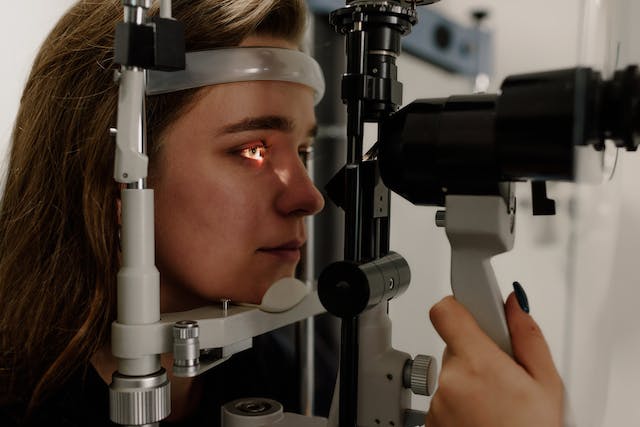You only have one pair of eyes, so better take care of them. Don’t lose sight of it the next time you shop for frames and lenses.
1. The glasses sold in pharmacies are quite suitable
Despite everything you’ve heard, drugstore glasses aren’t necessarily bad. A lot of patients have been told that over-the-counter glasses are bad for their eyes and could damage them. This is totally wrong! If you have good vision but have some difficulty reading, these magnifying glasses are a perfectly acceptable and practical choice. The strength of these glasses varies with age.
2. You’re gonna need glasses at some point
Even if you have perfect vision for the first half of your life, at some point, you will start to squint at your phone screen and ask your kids to read you the menu at the restaurant. There’s even a name for this vision loss synonymous with aging: presbyopia, which prevents us from “focusing on near objects.” When you start to feel the urge to stretch your arm out to see the fine print – around age 40 – it’s time to buy a pair of adjustable glasses. If the deterioration of your vision in middle age goes the other way – you can still read, but the road signs look like hieroglyphics – you are becoming nearsighted. Go to your optometrist and get a prescription for corrective lenses.
3. Scratches spoil your sight
Of course, you can still see through those scratched-up glasses, but struggling to break through that fog can tire your eyes out. You can erase fingerprints but not scratches; therefore, treat your new pair of glasses with all due respect. To avoid scratches, never put them glasses down.
4. New lenses, new frames
Your desire to save money – or your love for your old frames – might cause you to want to replace only the lenses and not buy a new frame. Bad idea! You can’t put new lenses in old frames because your new lenses are going to be cut and mounted on the frame. However, the old frame must be heated to remove the old lenses and reheated to place the new ones, which puts stress on the plastic and increases the risk for it to break, split or crack with it. Better to opt for a new pair.
5. Some extras are worth it
UV rays, glare, eye fatigue, and harmful blue lights are all abuses to which your eyes are subjected on a daily basis. Fortunately, you can wear glasses that protect you from all of this without necessarily going through sunglasses. There are lenses that continually adapt to changes in light and protect your eyes. These lenses block 100% of UVA / UVB rays and reduce glaring lights. They also filter out harmful blue light emanating from phones, laptops, and LED or fluorescent bulbs.
6. Your vision can change in a few months
You may have exams for your eyes every two or three years, whenever the world around you loses a bit of its clarity, but your vision has changed dramatically in the meantime. There are many conditions that can dramatically change the suitability of your prescription. Cataracts, diabetes, and glaucoma, for example, can make new glasses necessary. It is, therefore, best to see your optometrist every year to make sure that your health and your vision are on the same page.

